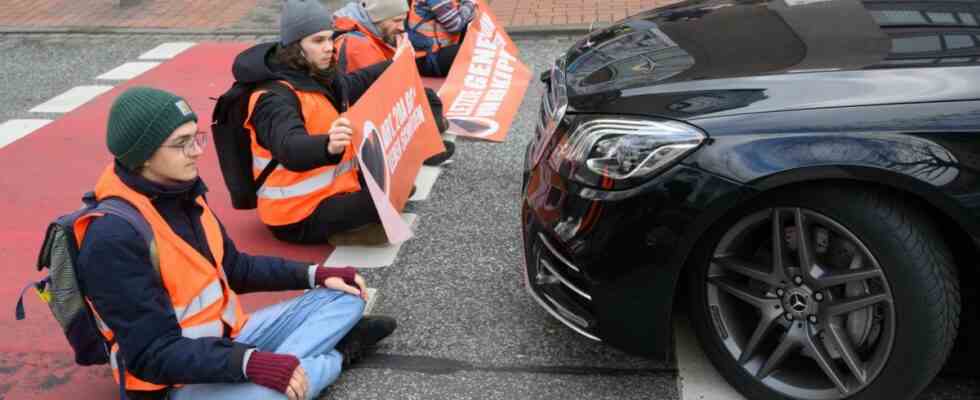Hanover is leading the way, at least this is the image that the city government wants to draw of itself: Belit Onay was elected the first green mayor of a German state capital in 2019. He then participated in the founding of the Nationwide municipal initiative for 30 km/h in town and wants to achieve his dream of a “car-free city” in Hanover. And that in a city that was designed as a model of the “car-friendly city” after it was almost completely destroyed in the Second World War.
Nevertheless, activists of the “last generation” have been sticking to one of the very wide main traffic routes in Hanover almost every day to demand even more climate protection. To this end, they also threw paint bags at the equestrian statue of King Ernst August in front of the main train station – almost worse for some proud Hanoverians.
The mayor is now also demanding the nine-euro ticket and a speed limit for motorways
This has now moved Belit Onay back to green pioneering work. As the first mayor of the Federal Republic, he negotiated seriously with the last generation; on Thursday, the remarkable news came from Lower Saxony: the city and activists made a deal.
The mayor supports the demands of the last generation, who want the nine-euro ticket back, as well as a speed limit on motorways. Onay explained this on Thursday in a letter to the chairmen of the parliamentary groups (with the exception of the AfD).
The only thing he doesn’t fully share is the call from the last generation to form a “social council” from among the citizens, which should ensure consistent climate protection in federal politics. One must see how this can be reconciled with the goal laid down in the coalition agreement of the traffic lights to install “citizens’ councils” as a supplement to the parliaments.
In return, the climate activists pledgethat they stop sticking themselves on the streets of Hanover and daubing monuments. A deal that has never existed in Germany before.
For months the activists have paralyzed main traffic arteries in Hanover, Berlin, Cologne, Munich etc. This has often led to angry counter-protests from blocked drivers and even violent vigilantism. Similarly, the (regular) Bavarian judiciary relied on preventive detention for repeat stickers, fines, community service and, in Brandenburg, investigations into suspected formation of a criminal organization. Understanding of the state, let alone willingness to negotiate, looks different.
First, the activists presented the city council with an ultimatum, which Onay did not accept
Until recently, one could actually understand the attitude of the Hanoverian mayor in this or something similar. After the last generation issued an ultimatum to the city council in support of their goals, Onay posted on Instagram on February 6th: “We do not accept ultimatums and threats against the Council”, even if it is “our common goal” to “stop the climate crisis”. But one is ready for a “constructive exchange with the federal level”.
Two weeks later, Onay seemed sufficiently annoyed by the activists’ actions. “It’s important to me to get the protest and the blockades off the streets,” he explains in another Instagram postthat he has negotiated with the last generation after all. In the NDR he said Thursday evening that the glue had caused “displeasure” in the city, so it couldn’t go on.
As a consequence, Onay now bows almost completely to the demands of the climate activists, who proudly attached his letter to the Bundestag to a press release. In Hanover’s city politics, Onay and the Greens are pretty much alone with this willingness to compromise. At the beginning of the negotiations, the CDU and FDP accused them of sitting down at a table with “criminals”. Onay’s coalition partner SPD was also not amused on Thursday: “We do not support the initiative,” said parliamentary group leader Lars Kelich Hannoversche Allgemeine Zeitung. He accused the last generation of speaking out of their protest “contempt for democracy”.

